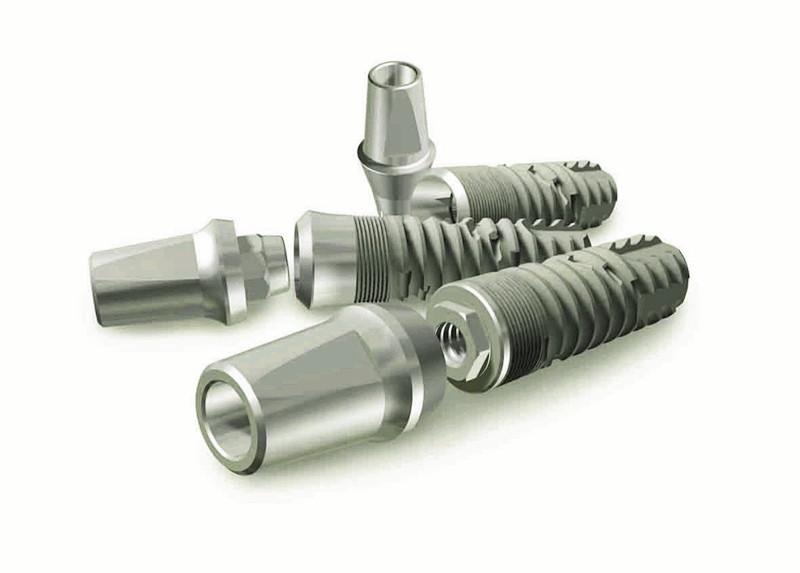
It was well known that dental implant (system) need conduct clinical trial before marketing, which is due to high risk.
Form this side, CIRS would like to share key points of clinical trial for dental implant with people who many concern.1. Evaluation criteria
Taking into account the special nature of Dental implant (system), you may not to set a control group, while adopt international evaluation criteria to determine whether the surgery of implant is successful. The evaluation criteria as following:
- No loosening of dental implant by clinical examination.
- No photic zone around the implant; the bone resorption shall be less than 1.0 mm during the first year, and less than 0.2 mm annual review.
- Clinical symptoms and signs after implanting, such as pain, infection, nervousness, paresthesia, etc.
- Aesthetic effect
2. Subject Inclusion/Exclusion Criteria
You shall stipulate and improve the Subject Inclusion/Exclusion Criteria in clinical trial research program. CFDA offers an advice for subject choice is that it is the best to choose the patients with single dental crown implant restoration to be subjects.
3. Sample size Determination
How to determine the sample size?
The basic principle of sample size determination is that you shall provide the specific computational formula and its provenance, and determine the sample size on the basis of the following aspects.
- Design type of test;
- Performance of main evaluation indicator; if you adopt the single group design, you shall provide the standard value of main evaluation indicator in according with international evaluation standard.
- Comparison type;
- Determine the probability of false positive and false negative; False positive probability shall be less than 0.05, and the false negative probability shall be less than 0.2.
- Expulsion rate, which shall be less than 20%.
4. Pre-implantation Assessment
The pre-implantation assessment shall include:
general condition of subject, disease condition, oral health condition, implanting position, pathological state (infection, bleeding and inflammation), oral hygienic state, bone condition of implanting position, paired jaw teeth condition, etc.
X-ray plate/CT plate of implanting position, quantitative analysis of bone height and width of alveolar crest, assessment of bone condition of implanting position by X-ray. All the X-ray plate/CT plate shall be comparable during the period of clinical trial.
3. Intra-implantation observation
- Pre-implantation preparation
Shall record the periodontal treatment condition, use condition of antibiotic and collutory before implantation, electrocardiograph monitoring for subject who with local anesthesia.
- Intra-implantation observation
Shall observe and record disinfection method, anesthesia method, incision method, dissection condition of alveolar bone of implanting position, implant type and basic parameter, implanting pattern, implant stability, bone grafting, etc.
- Post-implantation observation
Shall observe and record the medication use, and wound healing status on day 7 and day 14; Observe and record implant healing status after 1 month and 3 months by X-ray.
5. Post-implantation Assessment
- Frequency of clinical and radiological assessment
Shall indicate the times and frequency of clinical assessment and radiological assessment. The points in time of clinical observation generally are 1month, 3 months, 6 months and 1 year after implanting surgery. But for special types of implant, the observation time shall be extended to 3 years. Such as
1.Compare with the product in market, the implant has different material and design
2.The length of implant is less than 7 mm and (or) the diameter is less than 3.25 mm;
3.The angle of abutment is greater than 30 °;
4.Implant with new technology;
5.Implant with different intended use.
6.Implant with coating;
- Time interval of each stage of implantation
Shall indicate the time interval of each stage of treatment, such as the time between implant completion and the onset of abutment implantation. Follow-up period shall be from the beginning of the implant to withstand bite force, and describe occlusal load (functional load, non-functional load, gradualness load) according to clinical trial protocol.
- Drug therapy during research process.
Shall record the medication use (dosage) which will affect the research results, such as antibiotic, analgetic, mouth wash, etc.
Shall obtain the imaging data mentioned in the clinical trial. And analyze the absorbing condition of alveolar crest.
In addition to these four aspect of post-implantation assessment, the clinical evaluation index further comprises: health condition of soft tissue around the implant, dental implants activity, probing depth of soft tissue around the implant, and post-implantation complications.
6. Adverse reactions and complications
Shall describe and tabulate each adverse reaction and complication, such as infection, implant fall off before restoration, implant fall off after restoration, implant breakage, screw loosed or break off, pain, etc.
Shall provide the number of subjects who loss to follow-up, and the reason &time. For each adverse event, shall provide detailed event analysis report.
7. Data tabulation and statistical analysis
Shall tabulate the data of subjects’ report, which includes a copy of the information of subjects who fail to complete the clinical trial, and then make a statistical analysis. Record the statistical method and result.
The choice of statistical analysis is based on the design type of test, comparison type, data performance and analysis purpose. For the statistical method, you shall display the reference folder or formula. And any changes will be explained.


